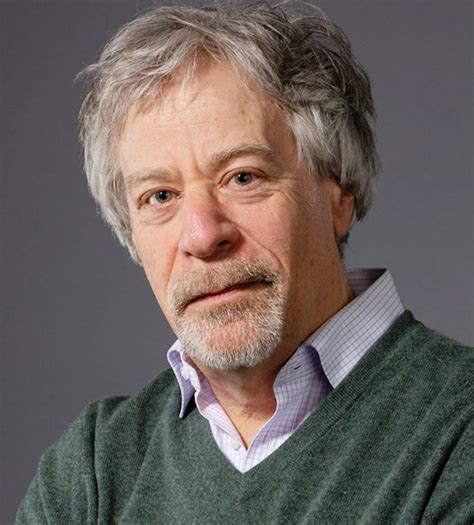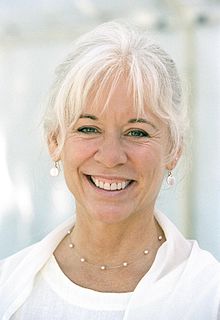A Quote by Lucian Freud
There is a distinction between fact and truth. Truth has an element of revelation about it. If something is true, it does more than strike one as merely being so.
Related Quotes
Fiction can produce truth, and truth can be false. What does it mean to say that it's true that, what, two out of six people in this city are starving? That's true, but that is only true because the conditions we live under are completely wrong - that should not be true, and it is. And in something like Sarah Polley's film, her fictions deliver so much truth. The retellings and the simulations and the theatrical aspects are what deliver all the truth.
What I hate about kitchen-sink dramas is [this idea] that the set is real, therefore you're going to be seeing truth. You have to earn truth. Truth can't be a part of the fact that people appear to talk that way and live in that room. You're looking for the poetry in something, and I don't mean poetry in the fancy sense. Naturalism believes by just replicating a thing you give the truth, rather than earning the truth.
Nothing is drearier than just always telling the truth about yourself. Rousseau, who as far as I can tell was a pathological liar, made this wonderful distinction between lying, which he said there was something wrong with if you were trying to extract an advantage for yourself or evade responsibility for some nasty thing you'd done. But if all you're really trying to do is impress or keep it young or make life more vivid and interesting, go for it! There's no real harm in doing something like that. I think people can be overly saddled to the truth.
The Bible is a wonderful book. It is the truth about the Truth. It is not the Truth. A sermon taken from the Bible can be a wonderful thing to hear. It is the truth about the truth about the truth. But it is not the truth. There have been many books written about the things contained in the Bible. I have written some myself. They can be quite wonderful to read. They are the truth about the truth about truth about the Truth. But they are NOT the Truth. Only Jesus Christ is the Truth. Sometimes the Truth can be drowned in a multitude of words.
Truth and falsity, indeed understanding, is not necessarily something purely intellectual, remote from feelings and attitudes. ... It is in the total conduct of men rather than in their statements that truth or falsehood lives, more in what a man does, in his real reaction to other men and to things, in his will to do them justice, to live at one with them. Here lies the inner connection between truth and justice. In the realm of behavior and action, the problem recurs as to the difference between piece and part.
The investigation of the truth is in one way hard, in another easy. An indication of this is found in the fact that no one is able to attain the truth adequately, while, on the other hand, no one fails entirely, but everyone says something true about the nature of all things, and while individually they contribute little or nothing to the truth, by the union of all a considerable amount is amassed.







































